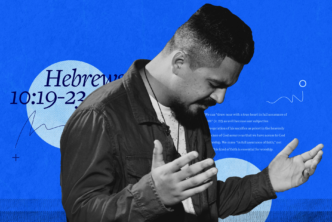You’ve known this story since you were a kid sitting in front of a flannel board in Sunday school. David, the Israelite shepherd boy armed with a sling and a few stones, defeats Goliath, the giant Philistine warrior.
This seemingly mismatched battle between a plucky little guy and an invincible big guy has captured imaginations to the point that even people who have never set foot in church know that a “David and Goliath” situation involves an underdog taking on a titan.
Rethinking David and Goliath
But what lesson should we take away from the story of David and Goliath? Is it about courage? Faith? Humility? All of the above? As is often the case with narrative portions of the Bible—and particularly the Old Testament—the message for readers is not explicitly stated.
In Rethinking David and Goliath, Lisa A. Eary brings the method of evangelical narrative criticism to bear on this familiar tale. Following OT scholar J. Daniel Hays, Eary describes evangelical narrative criticism as “a modified form of literary criticism that adopts the standard techniques of literary analysis to enhance close reading of the text but rejects the postmodern presuppositions.” It looks at a text’s literary features, history, and theological elements to help readers see how their own lives might be transformed.
The message behind David’s victory
Applying evangelical narrative criticism to 1 Sam. 17, Eary argues that the clash of David and Goliath presents a clear message—and not the one we sometimes think. She writes, “The story is less about ‘overcoming giants’ than it is about seeing situations from God’s perspective and acting in faith on that belief.” While David did overcome Goliath, the point is that he trusted in the God of Israel when other Israelites (especially King Saul) did not.
To get the rest of Eary’s fresh take on this well-known story, order Rethinking David and Goliath today!






